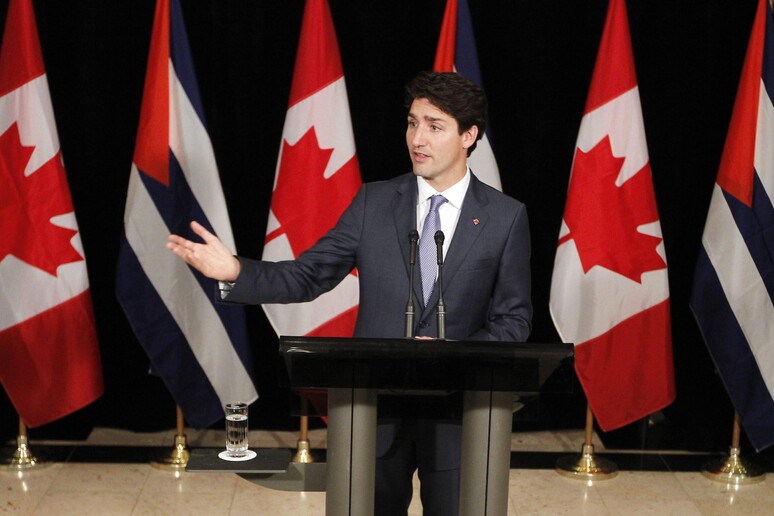Donald Trump’s threat to annex Canada is not just a negotiating tactic, but a reality that puts the country’s sovereignty at risk. This was stated by Justin Trudeau, who, in an emergency summit with Canadian business leaders, explained how the US President covets the vast mineral resources of the northern neighbor.
Trudeau clarified that not only is the GOP leader fully aware of the natural resources in the nation, but this awareness might be behind his continuous statements about the idea of annexing Canada and turning it into the 51st state. The intimidation now appears to be an increasingly real danger.
The meeting, hurriedly convened in Toronto, was meant to coordinate a response to the growing threat. Just a few days earlier, the US President had threatened a 25% tariff on all Canadian imports, a move that would damage the country’s economy.
Although Trump granted a 30-day truce to continue negotiations, his social media statements did not go unnoticed. Trudeau pointed out that the US president continues to refer to him as “governor” instead of “prime minister,” which casts doubt on the sincerity of American diplomatic intentions.
During the summit, Trudeau explained that Canada, rich in strategic minerals such as lithium, graphite, nickel, copper, and cobalt, is a central target for the United States. These materials are crucial for the global energy transition and highly sought after by key allied countries.
Trudeau’s words seemed to resonate in a domestic political climate that has seen an increase in patriotism. The threats, in fact, have reshaped political dynamics, strengthening the sense of Canada’s national identity.
In Quebec, where discussions about provincial secession had been gaining traction, the number of people who say they are “very proud” to be Canadian, according to an Angus Reid poll, increased by 13 percentage points, rising from 45% to 58%.
As Canada prepares for a series of crucial elections, political parties are striving to appear as defenders of autonomy and to increase support among citizens concerned about the threat from the neighboring state.












